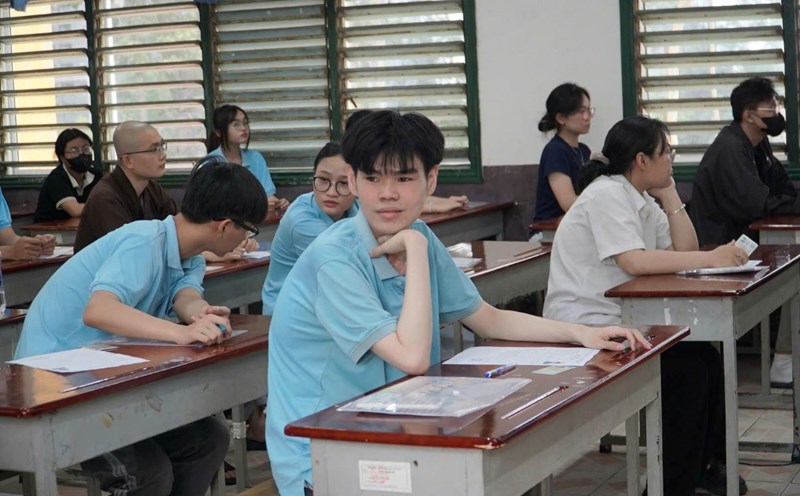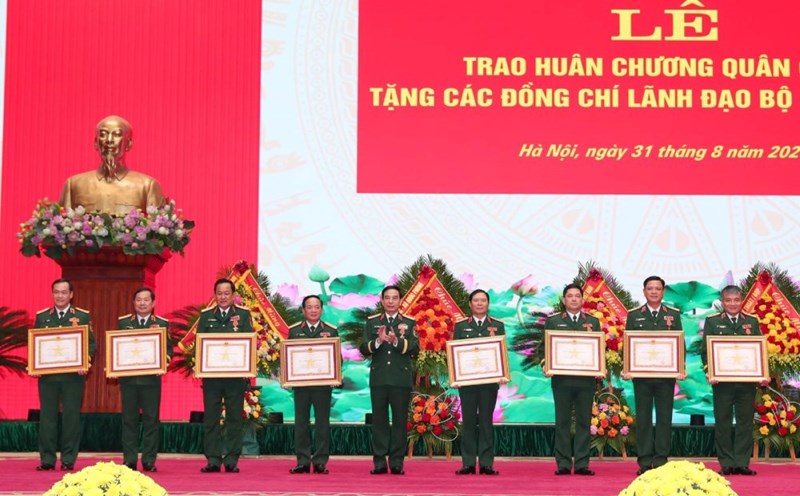Budget revenue, investment, and export all increased
According to Director of the Department of Finance Nguyen Cong Vinh, the Ho Chi Minh City People's Committee has synchronously implemented "pillar" resolutions on science and technology, international integration, law-making, private economic development and solutions to promote growth according to Conclusion 123 of the Central Executive Committee. These policies have created clear changes, helping many sectors and fields recover and grow.
In 7 months, Ho Chi Minh City's total state budget revenue reached VND 472,588 billion, equivalent to 70.4% of the estimate assigned by the Central Government. Disbursement of public investment capital reached more than VND48,700 billion (41% of the plan). Total retail sales of goods and consumer service revenue is estimated to exceed VND1 million billion, up 15.5% over the same period in 2024.
The index of industrial production (IIP) for the past 7 months increased by 5.9%. Attracted FDI capital reached nearly 6.2 billion USD, up 45.6%. Export turnover reached 52.92 billion USD, up 7.15%. The city's special working group has removed difficulties for 86 projects, with a total value of more than VND420,000 billion, covering an area of about 1,200 hectares.
"The city is on the path of strong recovery, clearly demonstrated through industrial growth and international investment capital flows" - Mr. Vinh commented.
In the first 6 months of the year, Ho Chi Minh City grew by 6.56% and 7.49% if not including crude oil. Chairman of the Ho Chi Minh City People's Committee Nguyen Van Duoc emphasized that to complete the GRDP growth target of 8.5% for the whole year, GRDP in the last 5 months of the year must increase by at least 10.3 - 10.5%.
The city will focus on removing obstacles for key projects, promoting disbursement of public investment capital, at the same time reforming administration, supporting production and business and making the most of specific mechanisms and policies.
Re-draw the economic map with 4 strategic zones
After merging with Binh Duong and Ba Ria - Vung Tau, the new Ho Chi Minh City has an area 3 times larger than before, oriented to develop into an "international super city" of Southeast Asia. By 2030, the average GRDP per capita is expected to reach 14,000 - 15,000 USD; by 2045, Ho Chi Minh City strives to be in the group of 100 best cities in the world.
Chairman of the Ho Chi Minh City People's Committee Nguyen Van Duoc emphasized that after the merger, the mission of Ho Chi Minh City is to continue to play a pioneering role, leading and spreading development across the country.
The city will re-establish planning with the vision of "1 center, 3 regions and 1 special zone", not simply adding up boundaries, but optimizing and sharing advantages to strengthen regional linkages.
The core urban area of Ho Chi Minh City is the center of finance and high technology; Ba Ria - Vung Tau (formerly) is the capital of marine economy, clean energy, seaports, oil and gas and entertainment services. Binh Duong (formerly) is a high-tech industrial center. Con Dao Special Zone is a resort and spiritual tourism paradise.
The city also identified 3 development corridors (North - South, East and East - West) and 5 pillars: Industry; logistics associated with seaports, airports; international financial center; tourism and cultural industry; education - health - science and technology.
Dr. Truong Minh Huy Vu - Director of the Ho Chi Minh City Institute for Development Studies - commented that the economic picture since the beginning of the year has been quite positive, but noted that the city needs to pay special attention to the ability to absorb policies after the merger.
"The most important thing is that policies must penetrate each ward and commune, ensure the right target and promote efficiency" - Mr. Vu emphasized. He also said that although investment capital is pouring into Ho Chi Minh City, if the city does not promptly resolve and absorb it well, it will be difficult to retain investors in the long term.
He proposed that Ho Chi Minh City should issue a "growth index" assigning specific tasks to each industry, while focusing on social security, curbing inflation and developing social housing.
The city has created new momentum by attracting strategic investors, implementing Resolution 98, promoting green transformation and digital transformation. Continuing to improve, update and put policies into practice will help Ho Chi Minh City make a breakthrough in the coming period - Dr. Vu emphasized.











